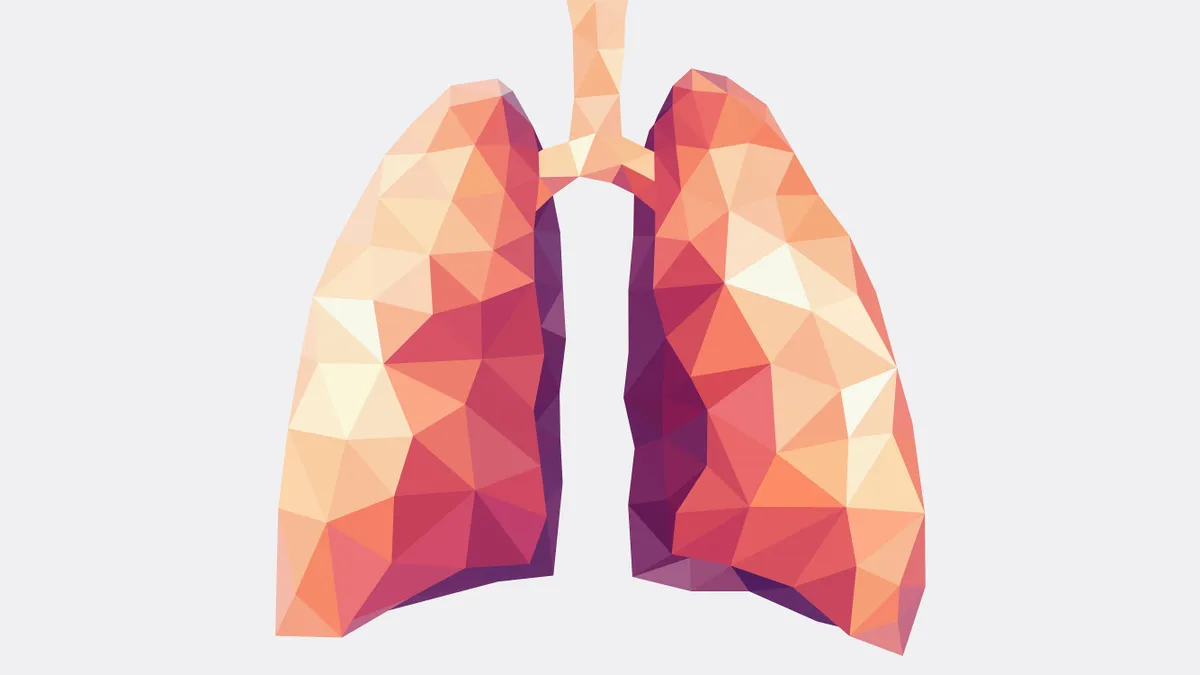Dive Brief:
- An experimental drug from biotechnology company aTyr Pharma missed its main goal in a Phase 3 trial, failing to help people with an inflammatory lung condition called pulmonary sarcoidosis significantly cut down on their use of steroids after nearly a year of treatment.
- The drug, called efzofitimod, is aTyr’s only clinical-stage prospect, and the company believed it might help reduce the inflammation and accompanying steroid use in people with pulmonary sarcoidosis. ATyr is also testing the drug in a Phase 2 trial in systemic sclerosis-related interstitial lung disease.
- ATyr’s shares lost more than 80% of their value on the news, changing hands on Monday morning at just over $1 apiece. That stock drop leaves aTyr with a value roughly equivalent to its cash reserves, a $113 million balance Leerink Partners analyst Faisal Khurshid estimated in a client note to be worth around $1.15 per share.
Dive Insight:
ATyr staked its future on efzofitimod seven years ago when it canceled a cancer-focused project and restructured around a drug it then called ATYR1923. With the latest setback, aTyr now finds itself in a similar position, as its stock price is again flirting with a record low.
The trial in pulmonary sarcoidosis focused on reducing reliance on steroids, which some people with the disorder need to reduce inflammation. Prolonged use of high doses of steroids — which many of the volunteers in its study were taking — can cause serious side effects, requiring use of other drugs like methotrexate or Rituxan.
At the highest dose tested in the clinical trial, a monthly infusion of efzofitimod equal to 5 milligrams per kilogram of body weight, trial participants were able to cut steroid use to an average of 2.79 milligrams a day, compared with 3.52 milligrams a day for placebo recipients.
That difference didn’t meet the trial’s threshold for statistical significance. In a research note ahead of the readout, Cantor Fitzgerald analyst Prakhar Agrawal estimated that the difference between the two groups needed to be at least 2.5 milligrams daily to meet that objective.
According to aTyr, around 53% of the enrollees taking efzofitimod went off steroids, compared with 40% of those who got a placebo. That result also fell short of expectations, as Agrawal wrote on Monday that physicians his team had consulted with were looking for at least a 20 percentage point difference to change practice.
ATyr said it plans to meet with the Food and Drug Administration to review the results and determine a potential path forward, citing the drug’s impact in the study on certain quality of life measures. But “we think it will be difficult for [aTyr] to make their case” given the “unclear relevance” of those benefits, wrote Khurshid, of Leerink.
Agrawal also warned that aTyr may have a tough time bouncing back with the ongoing trial in scleroderma-related lung disease, as that condition is in “an even riskier indication.”
Agrawal and Khurshid downgraded their ratings on aTyr shares to “neutral” and “market perform,” respectively.













